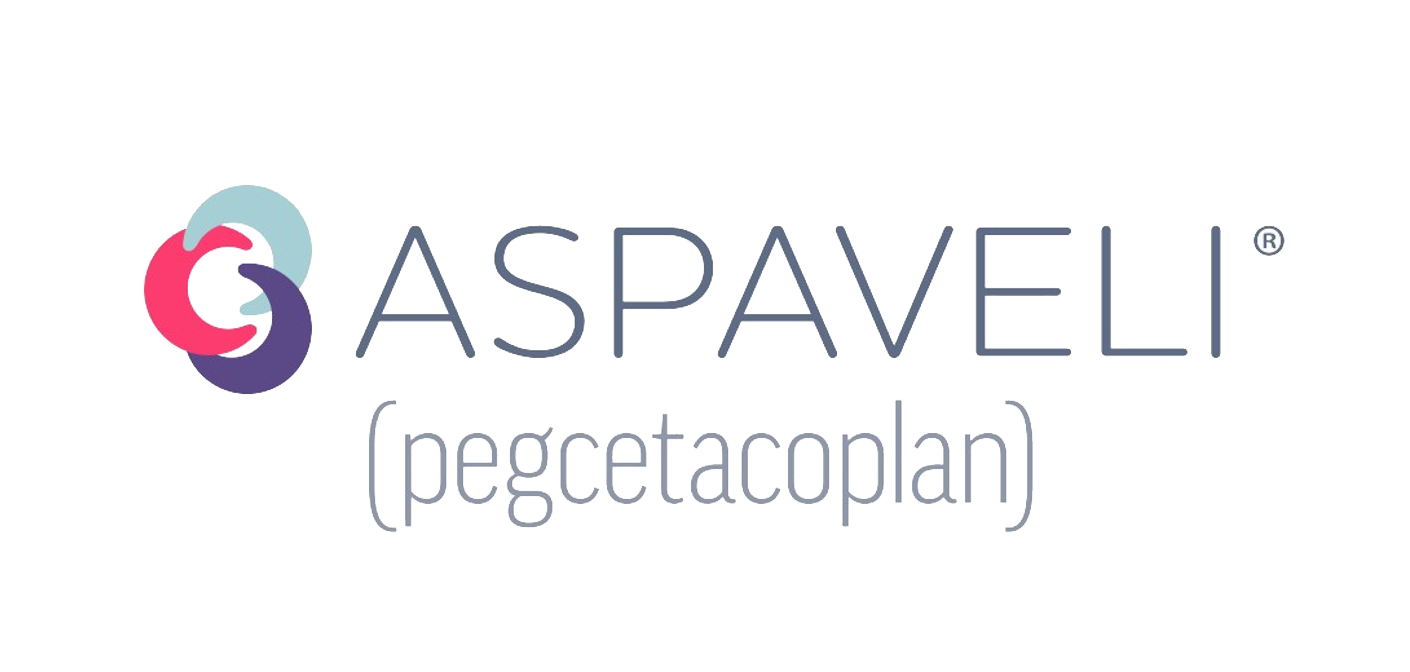Aspaveli is indicated as monotherapy in the treatment of adult patients with paroxysmal nocturnal haemoglobinuria (PNH) who have haemolytic anaemia.1
Safety profile
The efficacy and safety of pegcetacoplan in patients with PNH was assessed in two open-label, randomised-controlled phase 3 studies; in complement inhibitor-experienced patients in the PEGASUS study and in complement inhibitor-naïve patients in the PRINCE study.
In the PEGASUS study, the tolerability of Aspaveli was comparable with that of eculizumab.2,3
TEAEs in PEGASUS
| Aspaveli-to-Aspaveli | Eculizumab-to-Aspaveli | Eculizumab-to-Aspaveli | |||
|---|---|---|---|---|---|
| Patients With TEAEs, n (%) | RCP (n=41) |
OLP (n=38) |
Run-in-period (n=35)‡ |
RCP (n=39) |
OLP (n=39) |
| Any TEAE | 36 (88) | 33 (87) | 19 (54) | 34 (87) | 37 (95) |
| Mild | 19 (46) | 17 (45) | 13 (37) | 14 (36) | 16 (41) |
| Moderate | 9 (22) | 8 (21) | 4 (11) | 15 (38) | 12 (31) |
| Severe | 8 (20) | 8 (21) | 2 (6) | 5 (13) | 9 (23) |
| Serious TEAEs | 7 (17) | 8 (21) | 1 (3) | 6 (15) | 10 (26) |
Adapted from Peffault de Latour R et al. Lancet Haematol. 2022.
In the PEGASUS study:3
- In the RCP period, both groups had a comparable safety profile
- In the OLP period, there were no considerable changes in the safety profile
- Throughout the entire study, no patients required dose reductions or discontinued the study due to drug-related toxicity
The PRINCE study:
Pegcetacoplan was well tolerated in all patients who received it, including those who escaped from the control group (n = 11). The percentage of patients with AEs was similar in both treatment groups at week 26. Most AEs were mild or moderate.
There were 3 cases of haemolysis during study APL2‑308 in patients treated with pegcetacoplan. None of these cases were reported as serious or led to discontinuation of pegcetacoplan. The dose of pegcetacoplan was increased in all 3 patients.
Special warnings and precautions
Serious infections caused by encapsulated bacteria:1
The use of Aspaveli may predispose individuals to serious infections caused by encapsulated bacteria including Neisseria meningitidis, Streptococcus pneumoniae and Haemophilus influenzae. To reduce the risk of infection, all patients must be vaccinated against these bacteria according to applicable local guidelines at least 2 weeks prior to receiving Aspaveli, unless the risk of delaying therapy outweighs the risk of developing an infection.
Contraindications1
Aspaveli must not be initiated in patients:
- With unresolved infection caused by encapsulated bacteria including Neisseria meningitidis, Streptococcus pneumoniae and Haemophilus influenzae
- Who are not currently vaccinated against Neisseria meningitidis, Streptococcus pneumoniae and Haemophilus Influenzae unless they receive prophylactic treatment with appropriate antibiotics until 2 weeks after vaccination
PNH laboratory monitoring1
Patients with PNH receiving Aspaveli should be monitored regularly for signs and symptoms of haemolysis,
including measuring LDH levels, and may require dose adjustment within the recommended dosing schedule.
Please refer to the Aspaveli Summary of Product Characteristics for further information.


